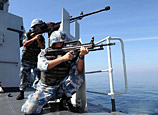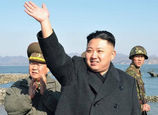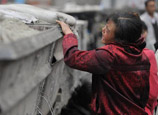
The IMF official also said Beijing should increase spending on health, education, pensions and other social programs, which would help allay public concerns about the economy and encourage people to spend more.
Zhu said the government should have a policy to discourage investment. Interest rates on loans are too low, while necessities such as energy, transportation, water and electricity are extremely cheap, fueling excessive expansion of certain parts of the economy.
However, Eswar Prasad, a professor at Cornell University in New York and a former China division chief at the IMF, suggested last month that it's wrong to think of Chinese GDP growth as continuing to be driven by exports and investment.
"China has made substantial progress on reducing its external imbalance, with the surpluses on both the current account and the trade balance falling sharply from their peaks in 2007," Prasad said at a hearing of Congress' US-China Economic and Security Review Commission.
He also pointed out the major challenges for China: implementing reforms to improve the quality and efficiency of growth, continuing to shift from capital-intensive production, creating jobs and helping more of the benefits of growth to reach Chinese households.

















 How we face 'getting old before getting rich'
How we face 'getting old before getting rich'


![]()
